Related Research Articles

John Caird DD LLD (1820–1898) was a Scottish theologian. He entered the Church of Scotland, of which he became one of the most eloquent preachers. He served as the Principal of the University of Glasgow from 1873 until 1898.

William Laurence Brown was a Scottish minister.

Henry Scougal (1650–1678) was a Scottish theologian, minister and author.
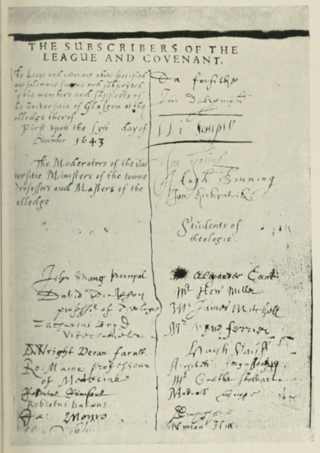
John Strang (1584–1654) was a Scottish minister and Principal of Glasgow University. He was a signator to the National Covenant of 1638.
Robert Durie was a Scottish presbyterian minister. He achieved notoriety for his presbyterian principles which brought him into conflict with James VI who wished to impose an episcopalian system. He attended the General Assembly of Aberdeen in 1605 which had been prorogued by royal authority and was one of six ministers who were imprisoned and later exiled as a result.
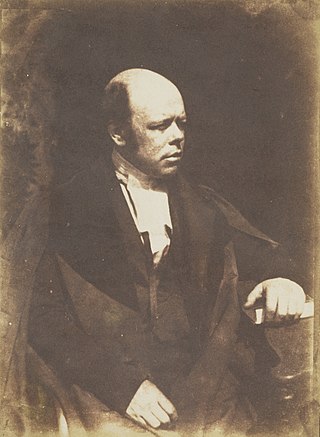
Andrew Gray, was a Scottish presbyterian divine.
Andrew Honeyman or Honyman (1619–1676) was a Scottish priest: he was Bishop of Orkney from 1664 until 1676.

George Cook (1772–1845) was a Scottish minister, author of religious tracts and professor of Moral Philosophy at St Andrews University. He served as Moderator of the Church of Scotland in 1825. He was the leader of the "moderate" party in the church of Scotland on the question of the Veto Act, which led to Disruption of 1843 and the formation of the Free Church by the "evangelical party.
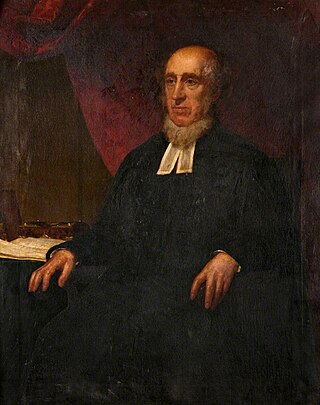
Alexander Hill (1785–1867) was a Scottish minister of the Church of Scotland who served as Moderator of the General Assembly of the Church of Scotland in 1845. He was professor of divinity at the University of Glasgow.
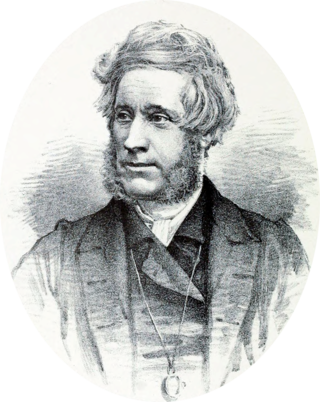
William King Tweedie (1803–1863) was an historian, biographer and a minister of the Free Church of Scotland Tolbooth Church, Edinburgh.
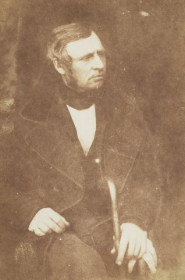
John Cook (1807–1874) was a Scottish minister who served as Moderator of the General Assembly of the Church of Scotland for the year 1866/67. In common with other members of the ecclesiastical family of Cook, he was a strong supporter of the moderate party in the Scottish church.
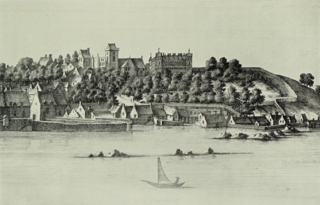
Michael Potter was a covenanter. He graduated from Edinburgh on 27 July 1663. He was licensed to preach the gospel in 1673. He was a tutor to the family of George, the Laird of Dunglass of that ilk. He was ordained by presbytery for the adherents in the parish of St. Ninians in 1673. He was elected a schoolmaster to Culross by the magistrates. This led to them being summoned before the Privy Council in 1677.

Alexander Forrester (1611–1686) was a Scottish minister of the 17th century.

John Cook was a Scottish minister, historian and amateur artist. He was a pioneer in the field of Biblical Criticism.
John Cook (1807–1869) was a Scottish minister and Professor of Church History who served as Moderator of the General Assembly of the Church of Scotland in 1859.
Andrew Duncan was a Latin scholar and Church of Scotland minister at Crail. He achieved notoriety for his presbyterian principles which brought him into conflict with James VI who wished to impose an episcopalian system. He attended the General Assembly of Aberdeen in 1605 which had been proscribed or prorogued by royal authority and was one of six ministers who were imprisoned and later exiled as a result. He was allowed to return after several years in France but was subsequently banished again following further controversy in failing to comply with the Five Articles of Perth. He died in exile in Berwick-upon-Tweed in 1626.
John Sharp was a theologian and Church of Scotland minister. He achieved notoriety for his presbyterian principles which brought him into conflict with James VI who wished to impose an episcopalian system. Sharp graduated with an M.A. from St Andrews in 1592. He was admitted to Kilmany in 1601. He was one of those who, in opposition to the Royal command, attended the General Assembly of Aberdeen. For this he and five other ministers were committed to the Castle of Blackness on 2 August. He was brought before the Privy Council at Perth on 27 August and interrogated as to the constitution of the Assembly. Not giving satisfactory answers they were tried before the Justiciary Court at Linlithgow on 10 January 1606, on a charge of treason, found guilty, and banished for life. On 23 October Sharp went to Bordeaux and became Professor of Theology in the University of Die, but would probably have returned to Scotland had honourable terms of reconciliation been offered him. In 1630 he was compelled to leave France at the instance of Cardinal Richelieu, the Prime Minister, who had grown jealous of Sharp's reputation as a Protestant teacher. Sharp was appointed Professor of Divinity in the University of Edinburgh on 17 November 1630. He died about 1647, aged 75.
James Wood was a Covenanter and Church of Scotland minister. He was appointed to be Professor of Divinity and Principal of the Old College, St. Andrews by Cromwell's government. He was deposed after the Restoration under the influence of Archbishop Sharp in 1663. He was then holding Presbyterian principles at a time when Charles II was promoting Prelacy. He died in 1664.

James Lawson was the Church of Scotland minister who succeeded John Knox at St Giles' Cathedral in Edinburgh. Lawson's great educational achievement was the founding of the University of Edinburgh. He may be said to have been its principal promoter, and its best and wisest friend during the first year of its history, 1583.
George Cook (1812–1888) was a minister of the Church of Scotland, who served as Moderator of the General Assembly in 1876.
References
Citations
- ↑ Cook 2013a.
- 1 2 Scott 1925, p. 178.
- ↑ Anderson 1877.
- ↑ Scott 1925.
- ↑ Gordon 1887.
- ↑ Scott 1928.
Sources
- Anderson, William (1877). "Cook, George D.D.". The Scottish nation: or, The surnames, families, literature, honours, and biographical history of the people of Scotland. Vol. 1. A. Fullarton & co. p. 680.
 This article incorporates text from this source, which is in the public domain .
This article incorporates text from this source, which is in the public domain .
- Cook, Diana Helen (2013a). "Initial family entry to patronage networks & Career progression". Change and Transition in a Professional Scots Family 1650-1900 (MPhil). University of Dundee. pp. 70-76.
- Cook, Diana Helen (2013b). "family tree". Change and Transition in a Professional Scots Family 1650-1900 (MPhil). University of Dundee. p. 143.
- Gordon, Alexander (1887). . In Stephen, Leslie (ed.). Dictionary of National Biography . Vol. 12. London: Smith, Elder & Co. p. 71.
 This article incorporates text from this source, which is in the public domain .
This article incorporates text from this source, which is in the public domain . - Scott, Hew (1925). Fasti ecclesiae scoticanae; the succession of ministers in the Church of Scotland from the reformation. Vol. 5. Edinburgh: Oliver and Boyd. p. 235.
 This article incorporates text from this source, which is in the public domain .
This article incorporates text from this source, which is in the public domain . - Scott, Hew (1928). Fasti ecclesiae scoticanae; the succession of ministers in the Church of Scotland from the reformation. Vol. 7. Edinburgh: Oliver and Boyd. p. 429-430, 444.
 This article incorporates text from this source, which is in the public domain .
This article incorporates text from this source, which is in the public domain . - Sefton, Henry R. (1991). St Mary's College, St Andrews in the eighteenth century. Edinburgh: Scottish Church History Society. p. 172.